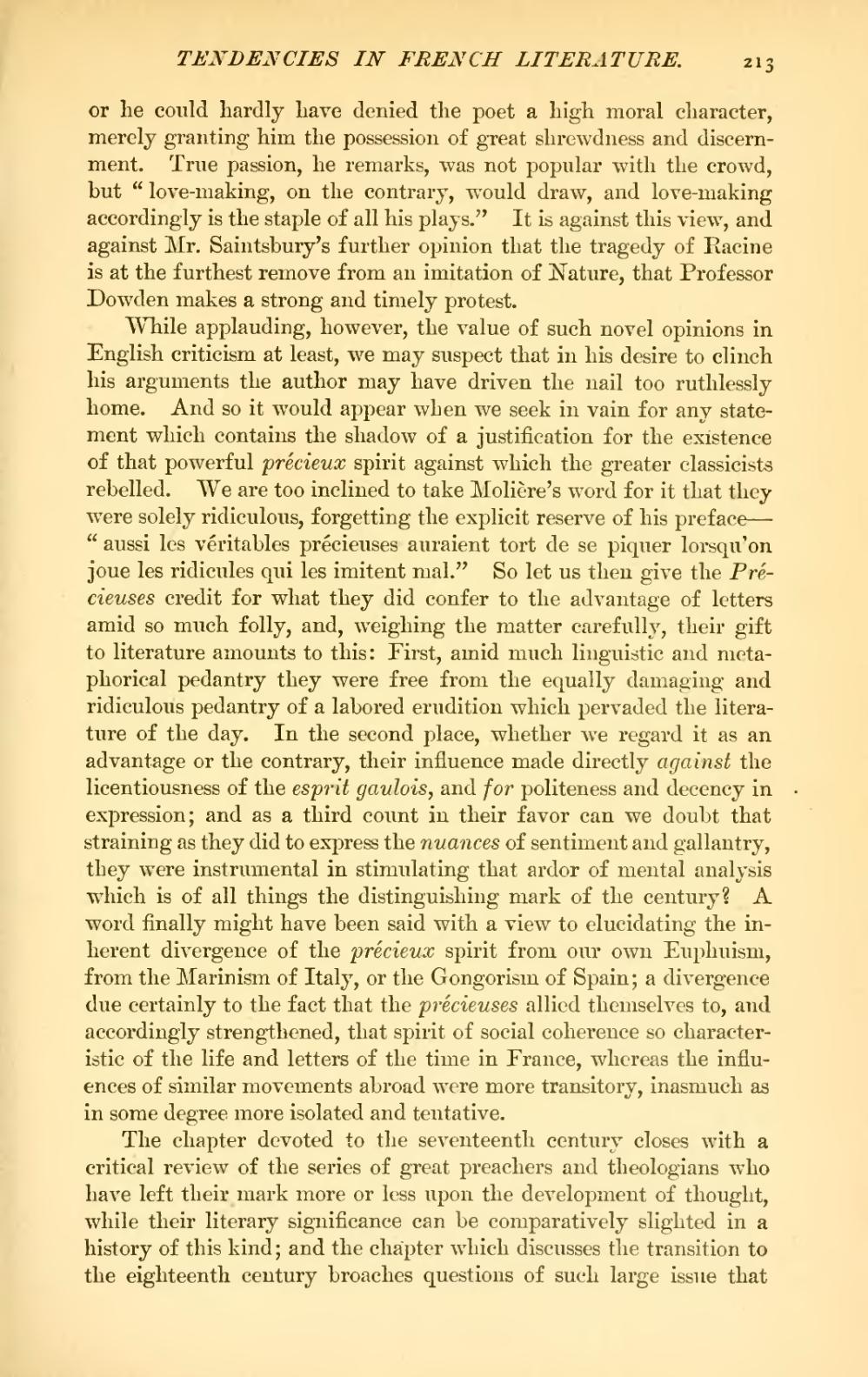or he could hardly have denied the poet a high moral character, merely granting him the possession of great shrewdness and discernment. True passion, he remarks, was not popular with the crowd, but "love-making, on the contrary, would draw, and love-making accordingly is the staple of all his plays." It is against this view, and against Mr. Saintsbury's further opinion that the tragedy of Racine is at the furthest remove from an imitation of ligature, that Professor Dowden makes a strong and timely protest.
While applauding, however, the value of such novel opinions in English criticism at least, we may suspect that in his desire to clinch his arguments the author may have driven the nail too ruthlessly home. And so it would appear when we seek in vain for any statement which contains the shadow of a justification for the existence of that powerful précieux spirit against which the greater classicists rebelled. We are too inclined to take Molière's word for it that they were solely ridiculous, forgetting the explicit reserve of his preface—"aussi les véritables précieuses auraient tort de se piquer lorsqu'on joue les ridicules qui les imitent mal." So let us then give the Précieuses credit for what they did confer to the advantage of letters amid so much folly, and, weighing the matter carefully, their gift to literature amounts to this: First, amid much linguistic and metaphorical pedantry they were free from the equally damaging and ridiculous pedantry of a labored erudition which pervaded the literature of the day. In the second place, whether we regard it as an advantage or the contrary, their influence made directly against the licentiousness of the esprit gaulois, and for politeness and decency in expression; and as a third count in their favor can we doubt that straining as they did to express the nuances of sentiment and gallantry, they were instrumental in stimulating that ardor of mental analysis which is of all things the distinguishing mark of the century? A word finally might have been said with a view to elucidating the inherent divergence of the précieux spirit from our own Euphuism, from the Marinism of Italy, or the Gongorism of Spain; a divergence due certainly to the fact that the précieuses allied themselves to, and accordingly strengthened, that spirit of social coherence so characteristic of the life and letters of the time in France, whereas the influences of similar movements abroad were more transitory, inasmuch as in some degree more isolated and tentative.
The chapter devoted to the seventeenth century closes with a critical review of the series of great preachers and theologians who have left their mark more or less upon the development of thought, while their literary significance can be comparatively slighted in a history of this kind; and the chapter which discusses the transition to the eighteenth century broaches questions of such large issue that
